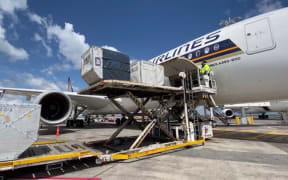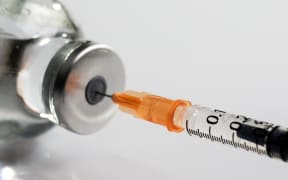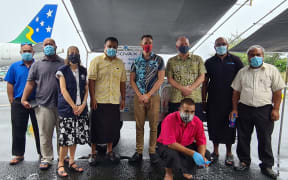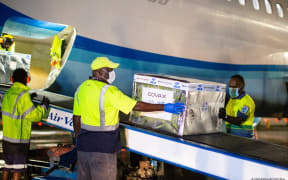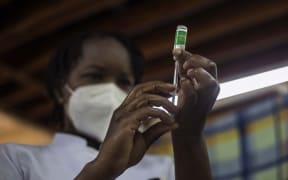A major humanitarian charity is warning many countries will not be able to achieve herd immunity through vaccinations this year.
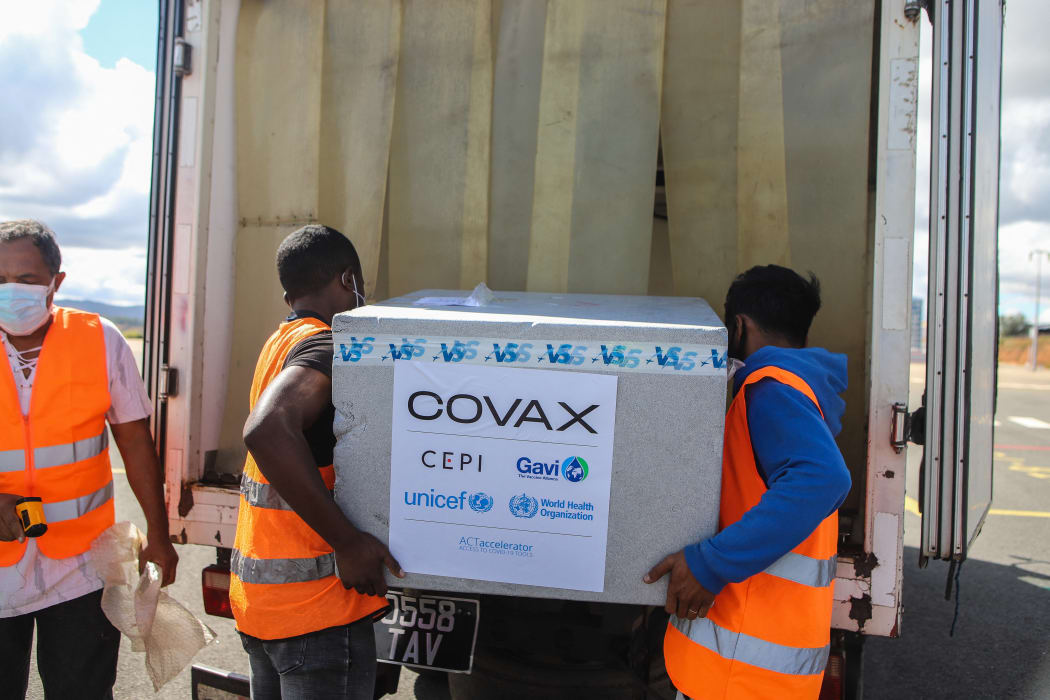
Workers load boxes of Oxford/AstraZeneca Covid-19 vaccines, part of the the Covax programme, into a truck after they arrived by plane at the Ivato International Airport in Antananarivo, Madagascar, on May 8, 2021. Photo: AFP / Mamyrael
Asia-Pacific group APEC announced they would review trade barriers, and expedite the cross-border transit of Covid-19 vaccines and related goods.
The move is designed to improve access to vaccines. In a joint statement, the ministers involved said it would address any "unnecessary barriers to trade in any relevant services that may hinder expediting and facilitating the movement of essential goods."
Trade Minister Damien O'Connor, who hosted the meeting, said it was a step in the right direction.
"This is a clear statement of purpose, and from the interventions across all 21 economies, there's a real commitment to follow through on this."
International Federation of Red Cross and Red Crescent Societies (IFRC) Asia-Pacific director Alexander Matheou said: "It is one of the constructive things that decision-makers can do to remove any trade barriers slowing down access to the vaccines."
Matheou said it could even be more helpful in how it impacted the flow of goods relating to the products, "necessary to produce and deliver the vaccine: people who are packing the freezing equipment [and] the glass vials etc.
"We very much welcome that APEC has made that decision."
However, he said it would not singularly solve the problem of the current inequitable distribution of the vaccine.
"The supply of vaccines is insufficient to meet demand, and most of the vaccines that have been procured and ordered, have been procured and ordered within Europe and North America.
"Asia-Pacific is further down in the queue. Many of the countries were relying on Covax, but Covax has moved far more slowly than people had hoped."
He said the Covax scheme was hampered by the severe Covid-19 outbreak in India, which slowed down the country's production of vaccines, "which was critical to the Covax plans".
Matheou said any vaccine India does produce was largely going toward its own population, as was also happening within China, the other big vaccine-producer in the region.
With some nations hoarding vaccines, he warned many countries such as Bangladesh, Pakistan, and Myanmar, would not be able to vaccinate enough of their population.
"For 2021, and probably deep into 2022, many countries of Asia-Pacific, will not have enough vaccines to reach herd-immunity.
"As well as focusing on vaccinations, we need to focus on preparing for second, third and fourth waves, pre-positioning oxygen, pre-positioning prevention kits."
APEC also addressed intellectual property rights.
The ministers said they would work proactively and urgently in World Trage Organisation (WTO) negotiations aimed at agreeing on a temporary waiver of intellectual property rights on vaccines "as soon as possible" and no later than the WTO's ministerial conference, scheduled for the end of November.
"It is unlikely to have a major effect this year, because [of] the time it will take to transfer the intellectual property and create the capacity to produce to scale."

